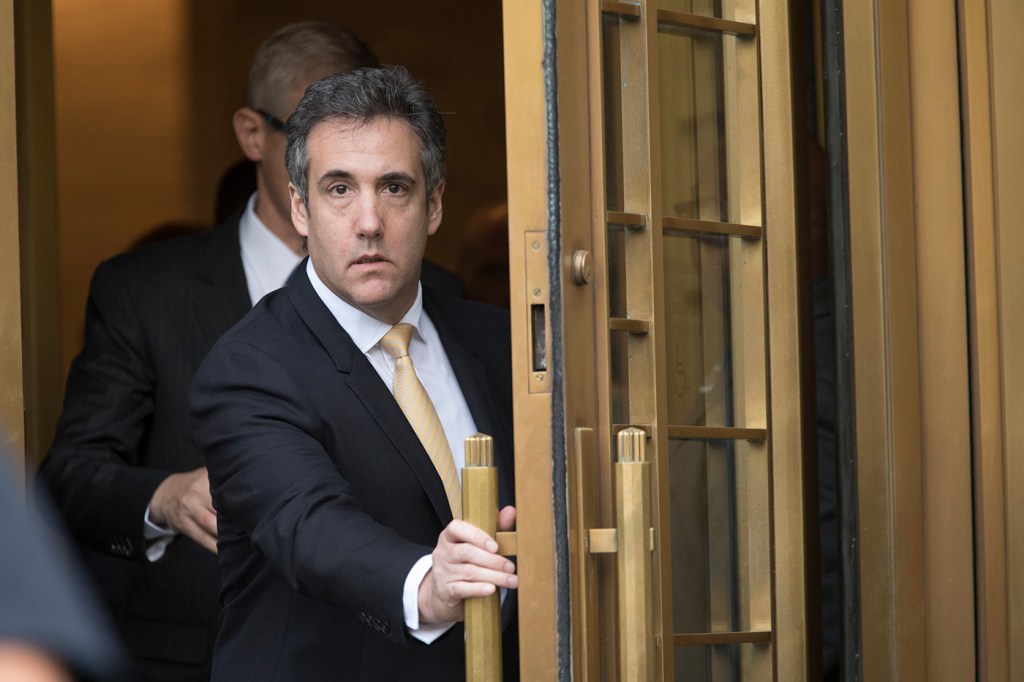Cohen implicated the president in a federal crime. Does that mean we’ll see Trump in court?

Can a sitting president be charged with a federal crime?
That’s the question raised by President Donald J. Trump’s former lawyer and fixer Michael Cohen, who told a court that Trump directed him to pay two women during the 2016 campaign to prevent potentially damaging information from coming out during the election. In doing so, he implicated the president in a violation of campaign finance law—a federal crime.
Trump and his lawyer have both denied the claims, but even if Cohen is telling the truth, the answer is no, said Northeastern law professor Michael Meltsner.
A sitting president can’t be charged with a crime. At least, not yet.
Trump told Fox News on Wednesday that Cohen’s payments were not illegal because they “came from me” and not campaign funds. “They weren’t taken out of campaign finance, that’s the big thing,” he said.
In the history of the U.S. presidency, the Justice Department has weighed in on the issue four times. The most recent was an instruction from Oct. 16, 2000, which says that doing so would undermine the president’s ability to do his “constitutionally-assigned functions.”
A criminal matter of the sort that a sitting president would be charged with raises a much more difficult question. On one hand, having him sit in court is disruptive of what we want the president to be doing. On the other hand, you don’t want a president who’s involved in criminal activity.
Michael Meltsner, Law Professor
That’s to say, a sitting president who is tied up in court appearances as the defendant of a case wouldn’t have time to do his job.
The policy, written in the waning days of the Clinton presidency, also considers the “non-physical yet practical interferences” that would come with trying a sitting president in court.
“The president is the symbolic head of the nation,” the policy reads. “To wound him by a criminal proceeding is to hamstring the operation of the whole governmental apparatus.”
The policy is clear-cut. A sitting president can’t be tried in a criminal case. But policies aren’t laws, Meltsner said.
“Policy can be disregarded,” said Meltsner, the George J. and Kathleen Waters Matthews Distinguished University Professor of Law. “It doesn’t have the force of law. The question of whether you can or cannot indict a sitting president is a matter of law that’s never been decided.”
There’s nothing in the Constitution that says whether a sitting president can be indicted. The policy from the Department of Justice is merely that—a policy to which the Justice Department has adhered so far.
“This is one of those untested constitutional questions,” Meltsner said. If a prosecutor were to challenge the policy, it would be up to the Supreme Court to decide.
“A criminal matter of the sort that a sitting president would be charged with raises a much more difficult question,” Meltsner said. “On one hand, having him sit in court is disruptive of what we want the president to be doing. On the other hand, you don’t want a president who’s involved in criminal activity.”





